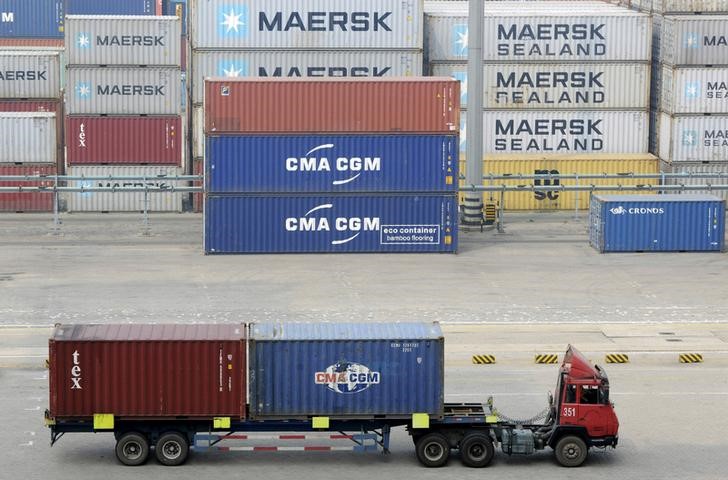Australian exports slide, trade surplus misses expectations in April
2023.06.07 23:15

© Reuters.
Investing.com– Australian exports fell in April, while the country’s trade surplus shrank more than expected as softening demand for commodities, particularly in China, saw a drop in metal shipments.
Australia’s fell to a surplus of A$11.15 billion (A$1=$0.6660) in April, data from the Australian Bureau of Statistics (ABS) showed on Thursday. The figure was lower than expectations for a surplus of A$14 billion, as well as the prior month’s reading of A$15.27 billion. The surplus was also at its weakest level since August 2022.
Metal exports dip as commodity demand weakens
Overall Australian fell 5% in April from the prior month to A$56.18 billion, hit chiefly by a drop in exports of metals ores and minerals, which shrank 10.4%. On a seasonally adjusted basis, Australian exports were at their weakest level in over a year.
Other commodity exports, such as coal and base metals, also logged steep drops through the month.
The trend comes chiefly from sluggish economic growth in China, Australia’s largest export destination. The Asian giant is grappling with a slowdown in manufacturing activity, amid waning overseas orders and muted local demand.
Official data showed that China’s shrank for a second straight month in May. China’s and also tumbled during the month, pointing to more economic duress.
While China’s commodity imports somewhat improved in May, analysts attributed this largely to inventory building as producers took advantage of weak prices.
Australian imports steady, but economic outlook dour
Australian remained steady through April, rising 2% from the prior month. But other readings this week showed that softening exports presented additional challenges to the Australian economy.
A drop in the country’s trade balance through the first quarter off its quarterly gross domestic product, which in turn in the March quarter.
The Reserve Bank also earlier this week, and warned of more raises to cool high inflation. But this is also likely to take a toll on the Australian economy.








